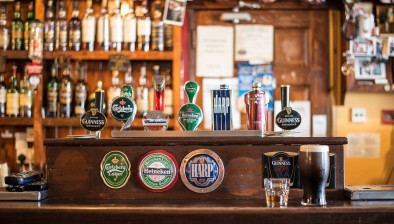Begbies Traynor: Scotland’s struggling sectors see further distress despite government support measures

Ken Pattullo
Businesses across almost all sectors in Scotland are experiencing further distress despite the support schemes implemented by the government to help combat the economic impact of the COVID-19 outbreak, according to insolvency firm Begbies Traynor.
The country’s beleaguered hotels, bars and restaurants and real estate were among the worst hit by the coronavirus pandemic. With the courts effectively almost closed during lockdown, the increase would be much higher were it not for the lack of legal action on insolvent and distressed businesses.
According to the latest research from Begbies Traynor, 7% of Scottish businesses were showing signs of ‘significant’ distress (those with minor decrees of less than £5k filed against them or which have been identified by Red Flag’s proprietary credit risk scoring system) in the second quarter of the year compared with the same period in 2019.
The firm’s quarterly Red Flag Alert data, which monitors the financial health of UK companies, shows that similar levels of this type of early distress was experienced across the UK with year on year ‘significant’ distress rising by 9%.
While the government swiftly introduced a number of measures such as CBILS and the Job Retention Scheme aimed at providing short term support during the crisis, a number of sectors, particularly those which had been struggling prior to the pandemic, have seen their fortunes worsen.
Real estate and property and hotels have been among the worst affected, seeing a 15% increase in the number of Scottish businesses experiencing ‘significant’ distress in the last three months compared with the same time last year. Other sectors in the region which have suffered are travel and tourism (11% increase in ‘significant’ distress year on year); bars and restaurants and food and drug retailers (both with 10% rise); and construction (up by 8%).
By the second quarter of 2020, Scotland had a total of 27,112 ‘significantly’ distressed businesses, up by 3% on Q1 2020, in line with the UK-wide figure which also showed a 3% rise, representing 527,000 businesses across the country. This type of distress is often viewed as a warning of more serious financial problems to follow.
Ken Pattullo, who leads Begbies Traynor in Scotland, said: “Unfortunately, what we’re currently seeing is very much the tip of the iceberg. In fact, the increase could actually be much higher as the virtual closing of the courts during the pandemic is holding back a flood of businesses from falling deeper into financial distress.
“The backlog of court cases as businesses are finally chased for unpaid bills, together with the imminent withdrawal of the government initiatives that are currently propping up a large number of companies, means we’re likely to see the biggest leap in business failures in the third quarter.
“While businesses in Scotland and across the UK have found themselves facing an unprecedented situation and, in many cases, were simply unable to trade during lockdown, there’s no doubt that the preceding years of increased financial squeeze have had an impact on their resilience. For many, particularly in struggling sectors such as real estate and hospitality, the COVID outbreak is likely to prove to be the final straw.”
He continued: “As government initiatives wind down and businesses cautiously attempt to re-open, those that have the capital and the ability, must restructure on the assumption that the world we now live in is here to stay. If they are to survive, they cannot afford to operate on hope that a return to normality is just around the corner. Businesses need to be prepared for things to get worse before they get better.”
- Read all of our articles relating to COVID-19 here.








